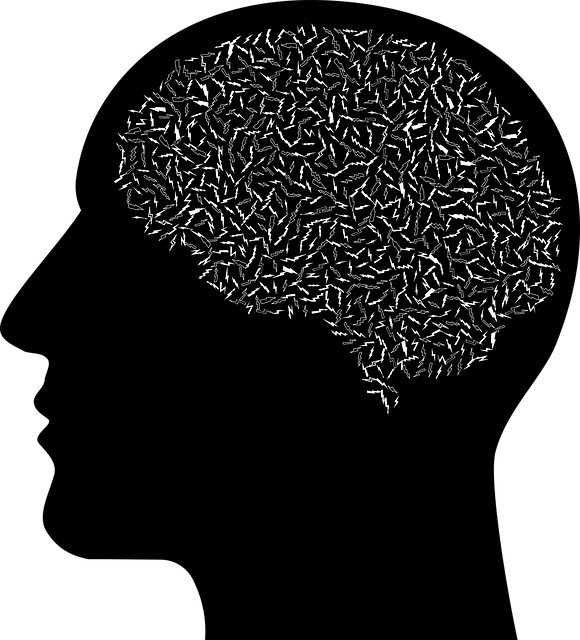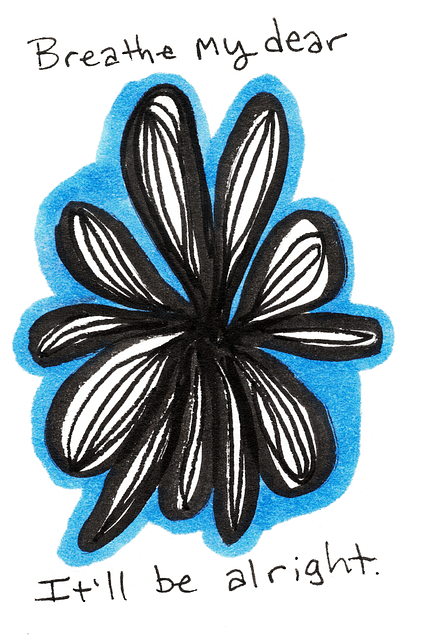Burnout among healthcare providers, often misdiagnosed, can be mitigated through early recognition of subtle signs like emotional exhaustion and reduced personal accomplishment. Cultural sensitivity in mental healthcare is crucial, especially for diverse caregivers. Compassion cultivation practices and Therapy for Spiritual-Religious Issues (TSRI) reduce stress and promote holistic well-being. Integrating TSRI as a burnout prevention strategy includes mental wellness coaching, fostering open dialogue and connections. Achieving work-life balance through personalized self-care and cultural sensitivity training improves emotional resilience, patient connections, and healthcare outcomes.
Healthcare provider burnout is a growing concern, impacting not just individuals but the entire healthcare system. This article explores effective prevention strategies to combat this pervasive issue. We delve into recognizing early signs and symptoms of burnout, highlighting the role of spiritual-religious therapy as an innovative approach in healthcare settings. Additionally, we present sustainable work-life balance strategies for providers, emphasizing the importance of self-care and well-being. Discover how these methods can foster resilience and mitigate burnout risks, incorporating therapy for spiritual-religious issues to enhance overall professional satisfaction.
- Recognizing Burnout: Early Signs and Symptoms
- Integrating Spiritual-Religious Therapy in Healthcare Settings
- Sustainable Work-Life Balance Strategies for Healthcare Providers
Recognizing Burnout: Early Signs and Symptoms

Burnout among healthcare providers is a growing concern, but it can often be overlooked or misdiagnosed. Recognizing burnout early is crucial for effective intervention and prevention strategies. The initial signs and symptoms may seem subtle, but they can significantly impact a provider’s well-being and professional performance. These include emotional exhaustion, characterized by feelings of being drained and unable to cope; depersonalization, where providers detach emotionally from patients and their work; and reduced personal accomplishment, leading to self-doubt and a sense of ineffectiveness.
Many healthcare professionals also experience heightened anxiety, which can manifest as restlessness, irritability, and difficulty concentrating. Cultural sensitivity in mental healthcare practice is essential, as burnout rates are often higher among providers who care for diverse patient populations. Compassion cultivation practices have been shown to be effective in reducing stress and promoting well-being. Additionally, addressing spiritual-religious issues through therapy can provide much-needed support, especially for those whose work evokes profound existential questions.
Integrating Spiritual-Religious Therapy in Healthcare Settings

In healthcare settings, integrating spiritual-religious therapy as a burnout prevention strategy has gained significant attention. This approach recognizes that many patients and caregivers often face unaddressed spiritual-religious issues that can contribute to stress, anxiety relief, and overall mental wellness. By incorporating Therapy for Spiritual-Religious Issues, healthcare facilities can foster an environment that supports the holistic well-being of their staff and patients. Such therapy programs can help individuals develop positive thinking skills, enhance coping mechanisms, and promote a sense of meaning and purpose, all of which are crucial in mitigating burnout.
The development of Mental Wellness Coaching Programs within this framework has shown promising results. These programs not only provide anxiety relief but also equip participants with tools to navigate the challenges of their professions with resilience. By combining spiritual-religious therapy with mental wellness coaching, healthcare providers can create a supportive network that encourages open dialogue, fosters connections, and ultimately, revolutionizes the approach to burnout prevention in today’s demanding healthcare landscape.
Sustainable Work-Life Balance Strategies for Healthcare Providers

Healthcare providers often face unique challenges that can lead to burnout due to demanding work schedules and high-stress environments. Achieving a sustainable work-life balance is crucial for maintaining well-being and preventing professional exhaustion. One effective strategy involves integrating self-care practices tailored to individual needs, ensuring adequate rest, exercise, and healthy nutrition. Additionally, cultural sensitivity in mental healthcare practice plays a significant role by addressing the spiritual-religious issues that may arise, providing a holistic support system.
Emotional regulation techniques such as mindfulness meditation, journaling, or seeking therapy can help providers manage stress and maintain emotional resilience. By adopting these strategies, healthcare workers can foster better coping mechanisms, enhance their ability to connect with patients, and ultimately improve patient outcomes. This approach not only benefits individual practitioners but also contributes to a more robust and compassionate healthcare system as a whole.
Healthcare provider burnout is a pressing issue, but by recognizing early signs and implementing sustainable work-life balance strategies, such as integrating spiritual-religious therapy, professionals can find respite and renewal. These approaches not only address the mental and emotional toll of the job but also foster a holistic well-being that is essential for long-term resilience against burnout. Embracing these strategies ensures healthcare providers can continue to deliver high-quality care with compassion and dedication.














